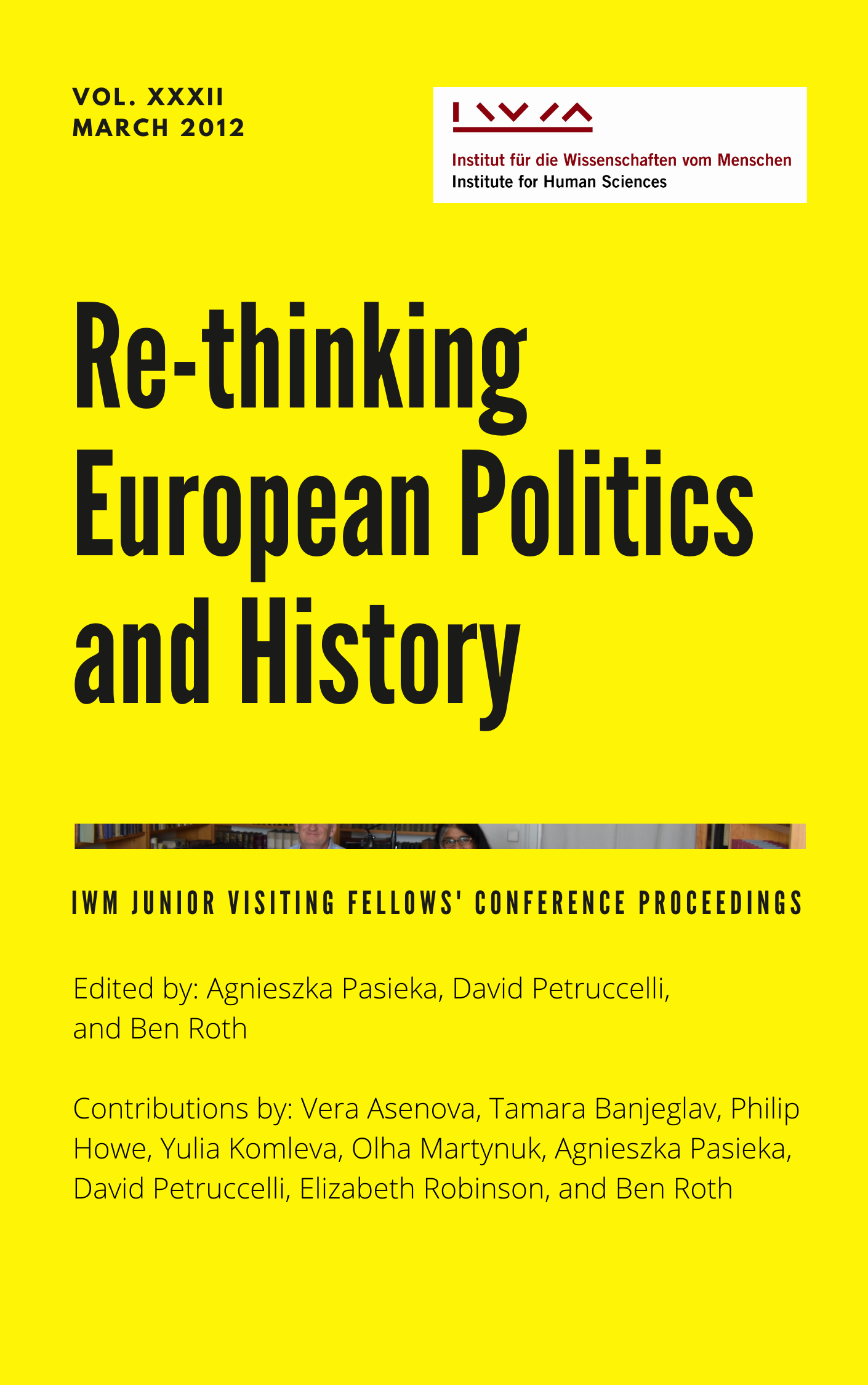A likely reaction to the title of this collection of essays might be an exasperated: ‘Again?’. Recent decades have seen perhaps unprecedented interest in issues of European politics and history, resulting from a variety of socio-political processes: the end of the Cold War and the 1989 transformation, the dissolution of the Soviet Union and the enlargement of the European Union, recent economic crises and rise of populist movement across Europe, new migrations and new (or revived) ethnic conflicts, just to name a few. This interest has been reflected not only in the topics of scholarly conferences and publications, but has shaped universities’ curricula and led to a reconfiguration of the boundaries between academia and other domains, such as political life and mass media.
Agnieszka Pasieka
Introduction ‘Re-thinking European Politics and History’
Yulia Komleva
Instilling the Idea of ‘Double’ Identity
Tamara Banjeglav
Memory of War or War over Memory? The Official Politics of Remembering in 1990s Croatia
Ben Roth
Confessions, Excuses, and the Storytelling Self: Rereading Rousseau with Paul de Man
Olha Martynyuk
Sacred Hills and Commercial Downtown: Ethnic Meanings of Urban Spaces in Late Imperial Kiev
Philip J. Howe
Imperial Austria as a Precursor to Consociational Democracy
Vera Asenova
Small States Outside World Markets Bulgaria’s Trade Relations with Germany and the Soviet Union, 1932-1956
Agnieszka Pasieka, David Petruccelli, Ben Roth
Comparative Methodologies: An Interdisciplinary Discussion

